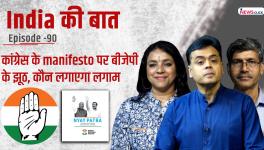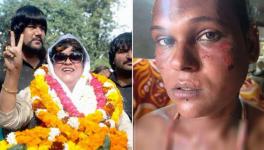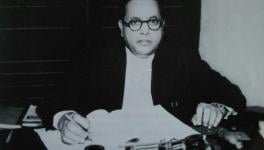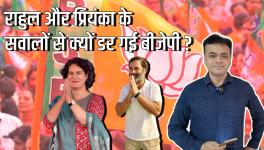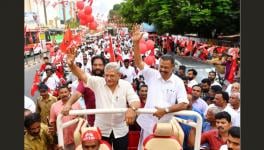Is There a Hidden Narrative Behind Slurs Hurled in Parliament?
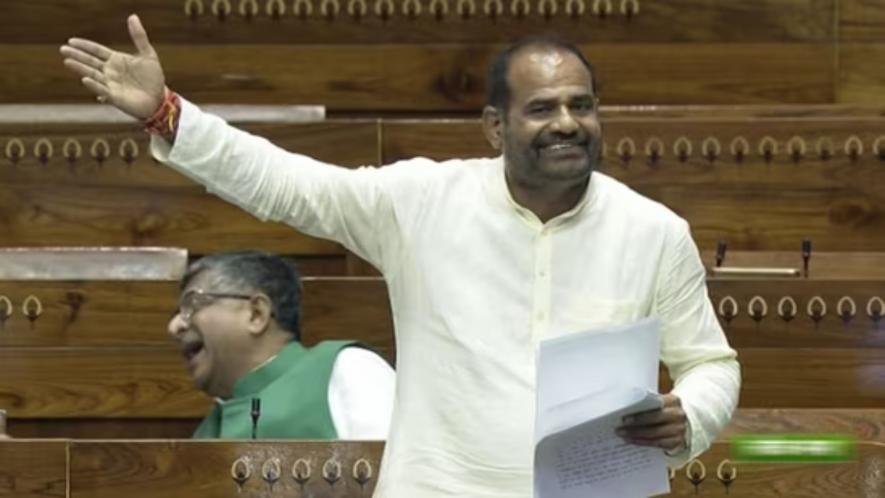
BJP MP Ramesh Bidhuri. Image Courtesy: PTI
The recent development in Parliament, of sitting Lok Sabha member Kunwar Danish Ali being referred to as a “terrorist” and “pimp” by Bharatiya Janata Party (BJP) parliamentarian Ramesh Bidhuri, who also threatened to settle scores with Ali outside Parliament, might illuminate the larger narrative structure of the BJP and the Rashtriya Swayamsevak Sangh (RSS).
However, we need to raise a different set of questions and offer an analysis different from what prevails in media reports and editorials. Repeated incidents of such a kind are often treated as “stray incidents” that are aberrations, and, therefore, condemning them and tendering an apology is not a problem for the ruling party.
However, this explanation may no longer help us understand the social character and narrative velocity of such incidents. We could, for instance, ask whether the remarks about Ali were off-the-cuff or planned as a part of a narrative. There is no way to know the answer, but one can reasonably raise the question as to what kind of a narrative and performance is potentially possible out of such a seemingly “shocking incident”.
Is there a pattern to such incidents, or are they as random as they are projected? Did not the BJP apologise on a previous occasion when Pragya Singh Thakur had celebrated the “martyrdom” of Nathuram Godse? Prime Minister Narendra Modi had said at the time that she could never be excused, but she went on to become a vocal Member of Parliament of his party.
Godse at home, Gandhi in the world is a fairly well-known strategy, and nothing about it looks random and happenstance.
Does it matter that Bidhuri is a Member of Parliament from the South Delhi seat and belongs to the Gujjar caste, recognised as an Other Backward Class (OBC) community? Is this, possibly, an incident that could wade off the potential damage that the Women’s Reservation Bill without a quota for the OBCs could do to the BJP’s electoral calculations? Has it not been a long-term strategy of the BJP to consolidate different social groups by producing a conflict between them and eventually acting as their only arbiter?
Is it possible that the “strategy” here is to consolidate women voters—both as women and as women of caste Hindu sections—and then project a masculine OBC voice against Muslims as a token of inclusivity and the voice of the BJP? Women are happy with the Bill and the OBCs with Bidhuri’s “heroic” abrasiveness. The reservation for women proposed in the Bill is a distant promise, so there is nothing for the male Members of Parliament to worry about for the time being or for the OBCs to think of the quota immediately.
As Modi hinted, for all of this to fructify, there is a need for a strong government with a decisive majority. So, it is a narrative of wheels within wheels that is open to multiple significations depending on one’s social location. The critical question, however, is the strategic ability of the BJP to mobilise contending social groups by deepening the social conflict between them without empowering either of them; in this case, neither the women nor the OBCs.
In the triple talaq case, Muslim men were criminalised, and Muslim women did not get alimony. The Congress party included, through accommodation, the BJP attempts to “include” by excluding others. Such a strategy is part of the majoritarian logic that does not begin or end with Hindu-Muslim polarisation but seeps into caste and gender relations, too.
In fact, one could argue that the modality of polarisation vis-a-vis the Muslims emerged from caste dynamics and sensibilities. Caste-based discrimination is unique in that the “lower”-end castes are neither allowed mobility nor to detach themselves. Detachment is rebuked through anti-conversion, and empowerment is rebuked as casteism. It is the logic of “absent presence” that Dalits define the contours of the caste order, dynamics and psyche by lying outside the formal caste/varna system.
Communalism in India and majoritarian dynamics are deeply marked by the sensibilities born out of managing the caste system and inequalities. Muslims, too, are integral to the order—again, without inclusion. The Dalits and Muslims are internal without inclusion. This is the precise reason why RSS chief Mohan Bhagwat said there can be no Hindutva without Muslims. Hindutva and a majoritarian order need every day and periodic referendums. It has to be built into every day to become a reality. It requires a quotidian reification and cannot be passed by law or instituted through custom or memory, though both are also invoked to strengthen the majoritarian project.
The Opposition parties did not hesitate to criticise the brazen act of incivility in Parliament, including Congress leader Rahul Gandhi, who has made it a mission to plant an alternative narrative of love and compassion and support compassion. While this does come as a relief, will it suffice to address the schisms being deepened through the dominant narrative? A narrative about love and compassion is vague, if not abstract. It creates an atmosphere for an alternative but may not provide an alternate frame to make sense of things.
The Opposition is failing to articulate and counter the micro-narratives within the BJP’s strategy. Why does the BJP think it can be indifferent towards women in the case of molestation of wrestlers and parading of women in Manipur, yet continue claiming the “Beti Bachao, Beti Padhao” slogan, followed by introducing the Women’s Reservation Bill? It can afford to neglect the OBC quota for women but counter it with Bidhuri’s offensive comments.
Perhaps it is possible because the BJP sees it through the lens of a live narrative and connects the dots, which gives it the advantage of control over the narrative, while the Opposition only has bullet points based on evidence and visualises each incident as a separate event disconnected from everything else.
It might reflect both a lack of clarity and conviction on the part of the Opposition to connect things because it will have to offer a more transformative politics, which has to transcend the current limits. The BJP has grown by precisely projecting itself as the harbinger of a more “progressive” narrative and demonstrated it in raising the gender question, the issue of caste within Muslims and the question of sub-castes within the Hindus—even as it appealed to a larger, common Hindu identity.
The Opposition has to change the terms of discourse to take control, but for now, it is treading carefully to find space by responding in an ad hoc manner.
The author is an associate professor at the Centre for Political Studies, Jawaharlal Nehru University. The views are personal. His new book, Politics, Ethics, Emotions in ‘New India’, was recently published by Routledge.
Get the latest reports & analysis with people's perspective on Protests, movements & deep analytical videos, discussions of the current affairs in your Telegram app. Subscribe to NewsClick's Telegram channel & get Real-Time updates on stories, as they get published on our website.









